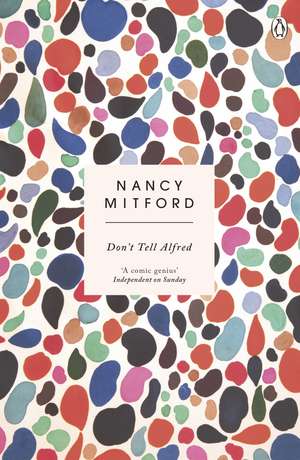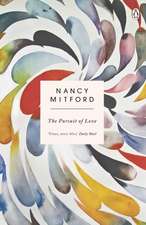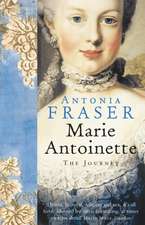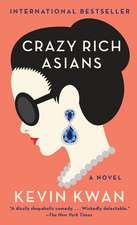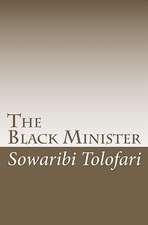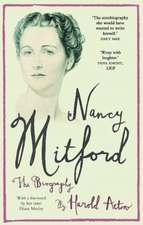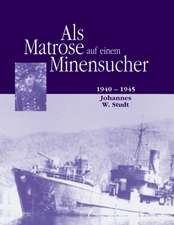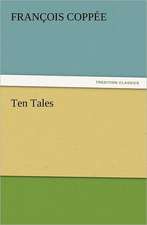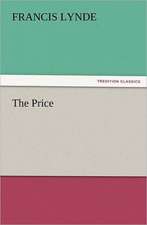Don't Tell Alfred: The wickedly funny sequel to The Pursuit of Love
Autor Nancy Mitford Introducere de Sophie Dahlen Limba Engleză Paperback – 25 noi 2015
'I believe it would have been normal for me to have paid a visit to the outgoing ambassadress. However the said ambassadress had set up such an uninhibited wail when she knew she was to leave, proclaiming her misery to all and sundry and refusing so furiously to look on the bright side, that it was felt she might not be very nice to me.'
Fanny is married to absent-minded Oxford don Alfred and content with her role as a plain, tweedy housewife. But overnight her life changes when Alfred is appointed English Ambassador to Paris. In the blink of an eye, Fanny's mixing with royalty, Rothschilds and Dior-clad wives, throwing cocktail parties and having every indiscreet remark printed in tomorrow's papers.
But with the love lives of her new friends to organize, an aristocratic squatter who won't budge and the antics of her maverick sons to thwart, Fanny's far too busy to worry about the diplomatic crisis looming on the horizon . . .
*****
'Peerless'Zoe Heller
'A comic genius'Independent on Sunday
'Deliciously funny'Evelyn Waugh
| Toate formatele și edițiile | Preț | Express |
|---|---|---|
| Paperback (2) | 52.43 lei 26-32 zile | +17.88 lei 7-13 zile |
| Penguin Books – 25 noi 2015 | 52.43 lei 26-32 zile | +17.88 lei 7-13 zile |
| Vintage Books USA – 31 iul 2010 | 108.50 lei 3-5 săpt. |
Preț: 52.43 lei
Preț vechi: 63.01 lei
-17% Nou
Puncte Express: 79
Preț estimativ în valută:
10.03€ • 10.47$ • 8.30£
10.03€ • 10.47$ • 8.30£
Carte disponibilă
Livrare economică 20-26 martie
Livrare express 01-07 martie pentru 27.87 lei
Preluare comenzi: 021 569.72.76
Specificații
ISBN-13: 9780241974704
ISBN-10: 0241974704
Pagini: 240
Dimensiuni: 129 x 198 x 15 mm
Greutate: 0.18 kg
Editura: Penguin Books
Colecția Penguin
Locul publicării:London, United Kingdom
ISBN-10: 0241974704
Pagini: 240
Dimensiuni: 129 x 198 x 15 mm
Greutate: 0.18 kg
Editura: Penguin Books
Colecția Penguin
Locul publicării:London, United Kingdom
Notă biografică
Nancy
Mitford
(1904-1973)
was
born
in
London,
the
eldest
child
of
the
second
Baron
Redesdale.
She
had
written
four
novels,
includingWigs
on
the
Green(1935),
before
the
success
ofThe
Pursuit
of
Lovein
1945,
which
she
followed
withLove
in
a
Cold
Climate(1949),The
Blessing(1951)
andDon't
Tell
Alfred(1960).
She
also
wrote
four
works
of
biography.
Nancy
Mitford
was
awarded
the
CBE
in
1972.
Extras
I
On the day which was to be such a turning-point in my life, I went to London by the 9.07. I had planned to do a little shopping; somebody had told me of Chinese robes in the sales, perfect for dinner at home since they would cover up everything. I was also going to see my naughty boy, Basil, a perennial worry to me; Aunt Sadie begged me to look in on Uncle Matthew and there was something I had long wanted to put to him. I had appointments to lunch with the one and to have tea with the other. It was a Saturday because that was Basil’s half-holiday – he was cramming for the Foreign Office. We were to meet at a restaurant, then go back to his lodgings, what used to be called ‘rooms’ and is now called a ‘service flat’. My idea was to do a little, surely much needed, tidying up there, as well as to collect some dirty clothes, and bring them back with me to have them washed or cleaned. I took a large canvas hold-all to contain them and the Chinese robe, if I bought it.
But, oh dear, I don’t think I’ve ever looked such a fool as I did in that Chinese robe, with my brown walking shoes, enormous beneath the hem, hair untidy from dragging off a hat, leather bag clasped to bosom because it had £28 in it and I knew that people snatched bags at sales. The assistant earnestly said think of the difference if I were carefully coiffée and maquillée and parfumée and manicurée and pedicurée, wearing Chinese sandals (next department, 35/6) and lying on a couch in a soft light. It was no good, however – my imagination could not get to work on all these hypotheses; I felt both hot and bothered; I tore the robe from me and fl ed from the displeasure of the saleswoman.
I had made my plan with Basil some days before, on the telephone. Like all the children he is quite incapable of either reading or writing a letter. I was rather more worried about him than usual; last time he had come to Oxford his clothes had been distinctly on the Teddy side while his hair combed (or rather pulled) over his forehead and worn in a bob at the back gave him a curiously horrible look. This, no doubt, is now the fashion and not in itself a cause for alarm. But when he was alone with me he had spoken about his future, saying that the prospect of the Foreign Service bored him and that he thought he could put his talent for languages to better account in some other career. The sinister words ‘get rich quick’ were uttered. I was anxious to see him again and ask a few questions. It was a blow, therefore, though not a great surprise, when he failed to turn up at the restaurant. I lunched there alone and then went off to find his service flat. The address he had given me, in Islington, turned out to be a pretty old house, come down in the world (soon no doubt to come down altogether). There were five or six bells at the front door with cards attached; one bell had no card but somebody had scribbed Baz on the wall beside it. I pressed it, without much hope. Nobody came. I went on pressing at intervals.
A sharp lad in Teddy costume was lounging in the street, eyeing me. Presently he came up and said, ‘If it’s old Baz you’re after, he’s gone to Spain.’
Rain, rain, go to Spain. ‘And when will he be back again?’
‘When he comes for the next batch. Old Baz is a travel agent now, didn’t you know? Joined up with his Grandad – some people are lucky in their relations. Baz herds them out to the Costa Brava, goes into hiding while they live it up there and brings back the bodies a week later. Or that’s the general idea – he’s only just started the work.’
Travel agent – Grandad – what did the child mean? Was not this a line of talk intended to keep me here until a man who was walking up the street should be out of sight? There was nobody else about, this dread Teddy, armed, no doubt, with blades, was clearly after my bag and the £28. I gave him a nervous, idiotic smile. ‘Thank you very much,’ I said, ‘that’s just what I thought. Good-bye and thank you.’
Upper Street was near and very soon I was in a good old No. 19 sagely ambling towards Piccadilly. This sort of thing always happened when I tried to see Basil. Oh well, one must put oneself in his shoes. Why should he want to spend his Saturday afternoon with a middle-aged mother? What a bore for a young man, on his own for the first time, to have to watch this elderly woman messing about in his room and taking away his suits. All the same, it was not like him to throw one over quite so callously; what could have happened? How could I find out? Meanwhile here I was in London on a Saturday afternoon with nothing to do until tea-time. We were passing the National Gallery, but I felt too dispirited to go in. I decided to walk off my bad temper in the Park.
Though I have lived in London for longish periods at various times in my life, I have never been a Londoner, so that its associations to me are more literary and historic than personal. Every time I visit it I am saddened by seeing changes for the worse: the growing inelegance; the loss of character; the disappearance of landmarks and their replacement by fl at and faceless glass houses. When I got off my bus at Hyde Park Corner, I looked sadly at the huge hotel where Montdore House used to be, in Park Lane. When first built it had been hailed as a triumph of modern architecture, but although it had only stood there for three years it had already become shabby, the colour of old teeth, and in an odd way out of date. I stumped off towards Kensington Gardens. Somebody had told me that Knightsbridge Barracks were soon to go, so I said good-bye to them. I had never looked at them very carefully – I now saw that they were solid and well built in a pretty mixture of brick and stone. No masterpiece, but certainly far better than the glorified garage that would replace them. Wendy’s Wishing Well is horribly altered, I noted, and what has happened to the trees in the Broad Walk? However, Kensington Palace is still there, though probably not for long, and eccentric old men are still sailing boats on the Round Pond, which has not, as yet, been dried and levelled and turned into a car park.
On the day which was to be such a turning-point in my life, I went to London by the 9.07. I had planned to do a little shopping; somebody had told me of Chinese robes in the sales, perfect for dinner at home since they would cover up everything. I was also going to see my naughty boy, Basil, a perennial worry to me; Aunt Sadie begged me to look in on Uncle Matthew and there was something I had long wanted to put to him. I had appointments to lunch with the one and to have tea with the other. It was a Saturday because that was Basil’s half-holiday – he was cramming for the Foreign Office. We were to meet at a restaurant, then go back to his lodgings, what used to be called ‘rooms’ and is now called a ‘service flat’. My idea was to do a little, surely much needed, tidying up there, as well as to collect some dirty clothes, and bring them back with me to have them washed or cleaned. I took a large canvas hold-all to contain them and the Chinese robe, if I bought it.
But, oh dear, I don’t think I’ve ever looked such a fool as I did in that Chinese robe, with my brown walking shoes, enormous beneath the hem, hair untidy from dragging off a hat, leather bag clasped to bosom because it had £28 in it and I knew that people snatched bags at sales. The assistant earnestly said think of the difference if I were carefully coiffée and maquillée and parfumée and manicurée and pedicurée, wearing Chinese sandals (next department, 35/6) and lying on a couch in a soft light. It was no good, however – my imagination could not get to work on all these hypotheses; I felt both hot and bothered; I tore the robe from me and fl ed from the displeasure of the saleswoman.
I had made my plan with Basil some days before, on the telephone. Like all the children he is quite incapable of either reading or writing a letter. I was rather more worried about him than usual; last time he had come to Oxford his clothes had been distinctly on the Teddy side while his hair combed (or rather pulled) over his forehead and worn in a bob at the back gave him a curiously horrible look. This, no doubt, is now the fashion and not in itself a cause for alarm. But when he was alone with me he had spoken about his future, saying that the prospect of the Foreign Service bored him and that he thought he could put his talent for languages to better account in some other career. The sinister words ‘get rich quick’ were uttered. I was anxious to see him again and ask a few questions. It was a blow, therefore, though not a great surprise, when he failed to turn up at the restaurant. I lunched there alone and then went off to find his service flat. The address he had given me, in Islington, turned out to be a pretty old house, come down in the world (soon no doubt to come down altogether). There were five or six bells at the front door with cards attached; one bell had no card but somebody had scribbed Baz on the wall beside it. I pressed it, without much hope. Nobody came. I went on pressing at intervals.
A sharp lad in Teddy costume was lounging in the street, eyeing me. Presently he came up and said, ‘If it’s old Baz you’re after, he’s gone to Spain.’
Rain, rain, go to Spain. ‘And when will he be back again?’
‘When he comes for the next batch. Old Baz is a travel agent now, didn’t you know? Joined up with his Grandad – some people are lucky in their relations. Baz herds them out to the Costa Brava, goes into hiding while they live it up there and brings back the bodies a week later. Or that’s the general idea – he’s only just started the work.’
Travel agent – Grandad – what did the child mean? Was not this a line of talk intended to keep me here until a man who was walking up the street should be out of sight? There was nobody else about, this dread Teddy, armed, no doubt, with blades, was clearly after my bag and the £28. I gave him a nervous, idiotic smile. ‘Thank you very much,’ I said, ‘that’s just what I thought. Good-bye and thank you.’
Upper Street was near and very soon I was in a good old No. 19 sagely ambling towards Piccadilly. This sort of thing always happened when I tried to see Basil. Oh well, one must put oneself in his shoes. Why should he want to spend his Saturday afternoon with a middle-aged mother? What a bore for a young man, on his own for the first time, to have to watch this elderly woman messing about in his room and taking away his suits. All the same, it was not like him to throw one over quite so callously; what could have happened? How could I find out? Meanwhile here I was in London on a Saturday afternoon with nothing to do until tea-time. We were passing the National Gallery, but I felt too dispirited to go in. I decided to walk off my bad temper in the Park.
Though I have lived in London for longish periods at various times in my life, I have never been a Londoner, so that its associations to me are more literary and historic than personal. Every time I visit it I am saddened by seeing changes for the worse: the growing inelegance; the loss of character; the disappearance of landmarks and their replacement by fl at and faceless glass houses. When I got off my bus at Hyde Park Corner, I looked sadly at the huge hotel where Montdore House used to be, in Park Lane. When first built it had been hailed as a triumph of modern architecture, but although it had only stood there for three years it had already become shabby, the colour of old teeth, and in an odd way out of date. I stumped off towards Kensington Gardens. Somebody had told me that Knightsbridge Barracks were soon to go, so I said good-bye to them. I had never looked at them very carefully – I now saw that they were solid and well built in a pretty mixture of brick and stone. No masterpiece, but certainly far better than the glorified garage that would replace them. Wendy’s Wishing Well is horribly altered, I noted, and what has happened to the trees in the Broad Walk? However, Kensington Palace is still there, though probably not for long, and eccentric old men are still sailing boats on the Round Pond, which has not, as yet, been dried and levelled and turned into a car park.
Recenzii
“A wickedly clever novel in Nancy Mitford’s best vein, hilariously funny in conception and execution.” —Chicago Tribune
“Witty, high-spirited, entertaining, perceptive, and both a little cozy and a little cruel.” —The New York Times
“Witty, high-spirited, entertaining, perceptive, and both a little cozy and a little cruel.” —The New York Times
Descriere
Descriere de la o altă ediție sau format:
Fanny Wincham has lived contentedly as housewife to absent-minded Oxford don, Alfred. But then her life changes overnight when Alfred is appointed English Ambassador to Paris. When Fanny's tenderhearted secretary begins filling the embassy with rescued animals and her teenage son shows up with a rock star in tow, things get entirely out of hand.
Fanny Wincham has lived contentedly as housewife to absent-minded Oxford don, Alfred. But then her life changes overnight when Alfred is appointed English Ambassador to Paris. When Fanny's tenderhearted secretary begins filling the embassy with rescued animals and her teenage son shows up with a rock star in tow, things get entirely out of hand.
